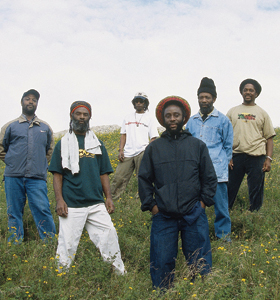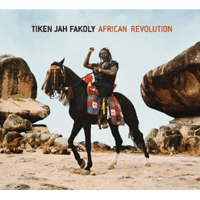The following article, written by Everton Pryce and published in the Jamaican Observer, Mar. 03, 2013, pays homage to one of the all-time greats of reggae music, Jimmy Cliff.
There is a proverb, suspected to be of Chinese origin, which goes something like this: “If you remain on the bank of the river long enough, you will see the bones of your enemies floating by.”
Jimmy Cliff, it is fair to say, has endured the cynicism of many detractors throughout his illustrious career, which involved him crossing many rivers on his way to winning two Grammy Awards (1986 and 2013) in the reggae category.
A great many of these detractors now bask in his illustrious achievements as creative artiste, singer, actor and poet, underlining the sterling contribution made to Jamaican culture and history by the creativity and collective experience of the mass of the population who are poor, dispossessed and marginalised.
When superstar Cliff was presented with the Manley Award for Excellence over 27 years ago, some upstart and mean-spirited artistes, along with a few misguided music journalists, thought it was an insult to those regarded as the “real musicians”. It was never made clear what “real musicians” implied, but presumably it meant those who reproduced other people’s music over the years. Acts of genuine creativity out of the ordinary people’s experience were regarded then as retreat into atavism.
Yet, the enduring voices of artistes like Bob Marley, Buju Banton, Bunny Wailer, Peter Tosh, Joseph Hill (of the group Culture) — to name just a few — and Jimmy Cliff, have uttered in their own inimitable way, maxims of prudence, guides to development, sharp historical analysis, and insights into the human condition.
In his song Price of Peace, for example, Cliff analyses the historical relations of a particular epoch of Jamaican life as only those who speak to reality through the arts of the imagination can:
“You stole my history/
Destroyed my culture/
Cut out my tongue/
So I can’t communicate/
Then you mediate/
And separate/
Hide my whole way of life/
So myself I should hate…”
Academics, political and economic practitioners, and our grassroots cultural ambassadors, will readily appreciate the genius in the poetic conciseness of this passage which brilliantly sums up the detailed research, theses, and book-length accounts they have given of specific examples of that historical period.
Failure on the part of many Jamaicans to appreciate the power in the insights of the ordinary Jamaican, whom the Jimmy Cliffs and Bob Marleys represent, continues to blur the vision of the society to the creative output of the ordinary folks representing what is considered mastery of what is said to be important for economic development.
Of course, the problem with such an attitude is that it encourages some Jamaicans to misguidedly regard reggae — even the immediately indiscernible variety — as non-music, even while the global village respects it enough to name a category of music for it.
Reggae’s musical creation out of the specificity of ordinary Jamaicans’ experience clearly accounts for its universal appeal and endurance.
This is why when asked recently during a TVJ Smile Jamaica It’s Morning Time interview what he thought of contemporary reggae music, Cliff cryptically replied: “Girls, cars and stars,” followed by the qualifier, “Music is music.”
His answer suggested, in subtle fashion, that the wisdom of the streets, where the ordinary people are to be found, is not to be discounted by the “Big man” (or “Big woman”), whether from the Parliament, the private sector, or the citadel of the creative industry.
Jimmy Cliff knows only too well that the wisdom that informs the success of reggae music, including his own genre, can be mined from the daily verbal exchange of millions of words in bars, on street corners, in tenement yards, shacks, the cane-piece, the market, mechanic shops, hairdressing parlours, barber salons, on radio, at the workplace and elsewhere.
More important, he knows it is also found in the dub poetry, the reggae songs, the deejay lyrics, and the paintings and carvings of intuitive artists like the late and celebrated Kapo Reynolds.
Cliff is off again on a month-long tour of some 10 cities in Asia and Australia to communicate the enduring aspects of our culture and history of suffering and survival, as well as designs for social living, to tens of thousands who respect him enough, and consider him relevant, to have exhausted ticket sales in advance of his arrival.
Where is the evidence that this illustrious and hard-working creative artiste of the soil is respected and revered to the same degree in his own yard?
His tour will no doubt generate millions of dollars in foreign exchange. Precisely how much of this will flow back into the country is hard to say. But be that as it may, can we dismiss the creative output of the imagination of an artiste like Jimmy Cliff as “non-productive”, and of less monetary value than what passes for entrepreneurial initiative in Jamaica?
Like Usain Bolt, Asafa Powell, Shelly-Ann Fraser Pryce, Veronica Campbell Brown, and others of their ilk, the 64-year-old Cliff has made it by self-reliance and the entrepreneurial use of his native creative talents. And despite the odds, he has shown that he is capable of the discipline, sustained application and hard work that people of his class are usually said not to possess.
We dare not ignore this talented, illustrious, and wise son of the soil. What comes through clearly in his capacity to endure over these many decades is his ability to think and to stay focused on his craft.
In the final analysis, his two Grammy Awards serve to remind a lopsided and otherwise evolving society that something other than minstrelsy exists among our people.
What a blessing!
For the original post: Jimmy Cliff — Jamaica’s superstar of endurance – Columns – JamaicaObserver.com.
See also: Repeating Islands

